Search
Search Results
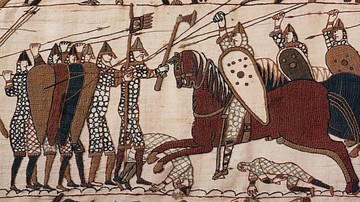
Definition
Battle of Hastings
The Battle of Hastings in south-east England on 14 October 1066 saw the defeat of the Anglo-Saxon king Harold II (r. Jan-Oct 1066) by the invading Norman army led by William, Duke of Normandy (reigned from 1035). After a day of heavy fighting...
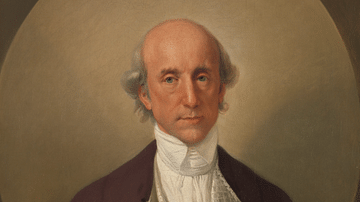
Definition
Warren Hastings
Warren Hastings (1732-1818) was appointed the Governor of Bengal by the British East India Company (EIC) in 1772 and became its first Governor-General in India from 1774 to 1785. Under his tenure, the EIC ruthlessly expanded its territory...
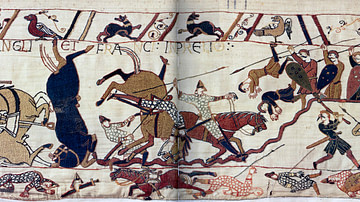
Definition
Norman Conquest of England
The Norman Conquest of England (1066-71) was led by William the Conqueror who defeated King Harold II at the Battle of Hastings in 1066. The Anglo-Saxon elite lost power as William redistributed land to his fellow Normans. Crowned William...
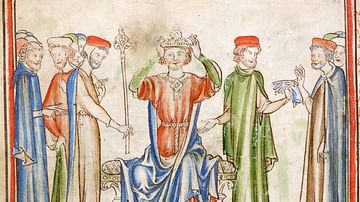
Definition
Harold Godwinson
Harold Godwinson (also spelt Godwineson) reigned briefly as King Harold II of England from January to October 1066 CE, the momentous year which witnessed the Norman conquest and end of 500 years of Anglo-Saxon rule. Harold had been, as the...
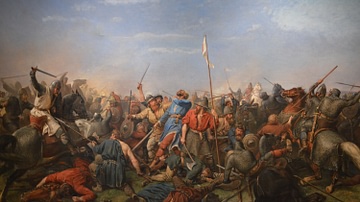
Article
Battle of Stamford Bridge
The Battle of Stamford Bridge in Yorkshire, England on 25 September 1066 CE saw an army led by English king Harold II (r. Jan-Oct 1066 CE) defeat an invading force led by Harald Hardrada, king of Norway (r. 1046-1066 CE). Hardrada, aided...
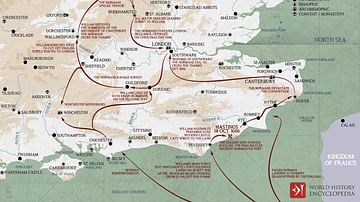
Article
William the Conqueror's March on London
William the Conqueror (r. 1066-1087 CE) was victorious at the Battle of Hastings in October 1066 CE, and Harold Godwinson, King Harold II of England (r. Jan - Oct 1066 CE) was dead. The English throne and kingdom were there for the taking...
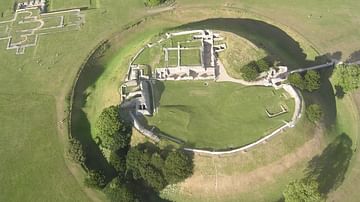
Article
The Impact of the Norman Conquest of England
The Norman conquest of England, led by William the Conqueror (r. 1066-1087 CE) was achieved over a five-year period from 1066 CE to 1071 CE. Hard-fought battles, castle building, land redistribution, and scorched earth tactics ensured that...
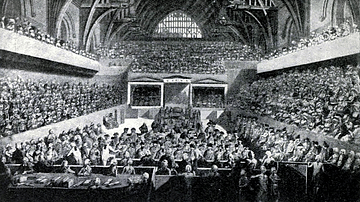
Image
The Trial of Warren Hastings
An illustration of the public trial of Warren Hastings (1732 - 1818) in Westminster Hall from 1787. Hastings was a colonial administrator and the first Governor-General of the East India Company. He was impeached by Parliament for corruption...
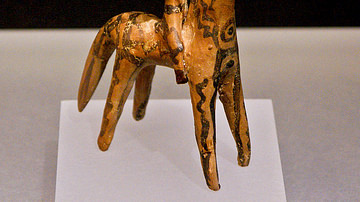
Definition
Warfare
Warfare is generally understood to be the controlled and systematic waging of armed conflict between sovereign nations or states, using military might and strategy, until one opponent is defeated on the field or sues for peace in the face...
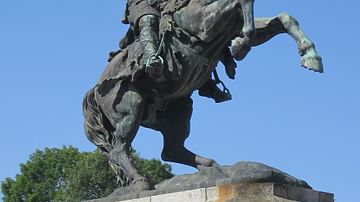
Definition
William the Conqueror
William the Conqueror (c. 1027-1087), also known as William, Duke of Normandy, led the Norman Conquest of England in 1066 when he defeated and killed his rival Harold Godwinson at the Battle of Hastings. Crowned King William I of England...